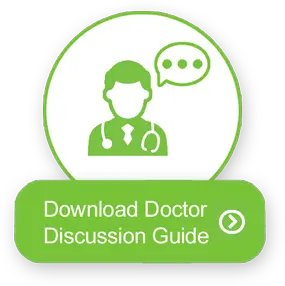
The answer appears to be “yes.” Jon Kabat-Zinn , founding executive director of the Center for Mindfulness at the University of Massachusetts Medical School, made headlines decades ago when he showed that his Mindfulness-Based Stress Reduction (MBSR) program helped patients with chronic pain lead healthier, better quality lives. His technique did not reduce the feelings of pain—but rather allowed the patients to better accept and cope with it. Since then, mindfulness-based techniques have shown to be effective in helping those with cancer, inflammatory bowel disease, and other health conditions, too.
Now, new research into mindfulness techniques—simply defined as methods that help us to pay attention and be more present and self-aware in one’s body and day-to-day life, accepting what might come our way—suggests that these techniques have strong and consistent benefits beyond the body. They are also effective in reducing stress and anxiety. And those reductions can not only help healthy individuals better cope with day-to-day stressors, they are also proving to be a positive and quite effective addition to treatment regimens for those living with chronic mental health conditions.
Mindfulness in cognitive behavioral therapy
Cognitive behavioral therapy (CBT), a common treatment for depression and anxiety disorders, is largely successful because it holds a strong mindfulness component. The American College of Physicians recently published a new practice guideline supporting CBT’s effectiveness for the treatment of depression.
“This method helps teach people to be more aware. To pay attention to what they think and then check to see whether those thoughts are actually correct,” says Claudi Bockting, a professor of clinical psychology at the University of Utrecht in the Netherlands. “In many mental health conditions, like depression and anxiety, your thoughts are biased. They are more negative or catastrophic than the reality actually is. So being more aware of that bias, and then learning to adjust those thoughts in response to that bias, can help people feel better. And we see this kind of awareness can be very helpful for many different mental health conditions.”
That self-awareness is key. In fact, many psychiatrists are now using different mindfulness techniques—and even mindfulness apps on patient’s smartphones, laptops, and tablets—to help their patients manage their stress and anxiety in between appointments. Peter Yellowlees, a psychiatrist at the University of California at Davis, says that simple relaxation and meditation exercises can make a big difference in how his patients cope with everyday life.
“Having access to fairly simple meditation techniques can effectively be like having a therapist in your pocket,” he says. “I was seeing a patient who had quite significant road rage. But we got it to when she was driving, she could pull off the road, do some meditation, calm down, and then start driving again instead of having a fight with someone. These are fairly simple things. But these techniques can really help make a difference in managing one’s condition from day-to-day.”
Finding mindfulness techniques that work for you
Not all mindfulness techniques are equal—and certainly, the effectiveness of individual methods will vary from patient to patient. But psychiatrists are learning that it doesn’t have to be complicated or require expensive classes or seminars to have a positive impact. It’s just about finding the right method for each patient that allows you to be present in body and mind, be aware of the way your brain and body habitually respond to certain situations, and work towards a more positive response.
Read more about similar topics at:
7 Mental Health Activities You Can Do at Home
Our articles are for informational purposes only and are reviewed by our Medical Information team, which includes PharmDs, MDs, and PhDs. Do not make any changes to your current medications or dosing without consulting your healthcare provider.
The GeneSight test must be ordered by and used only in consultation with a healthcare provider who can prescribe medications. As with all genetic tests, the GeneSight test results have limitations and do not constitute medical advice. The test results are designed to be just one part of a larger, complete patient assessment, which would include proper diagnosis and consideration of your medical history, other medications you may be taking, your family history, and other factors.
If you are a healthcare provider and interested in learning more about the GeneSight test, please contact us at 855.891.9415. If you are a patient, please talk with your doctor to see if the GeneSight test may be helpful.






